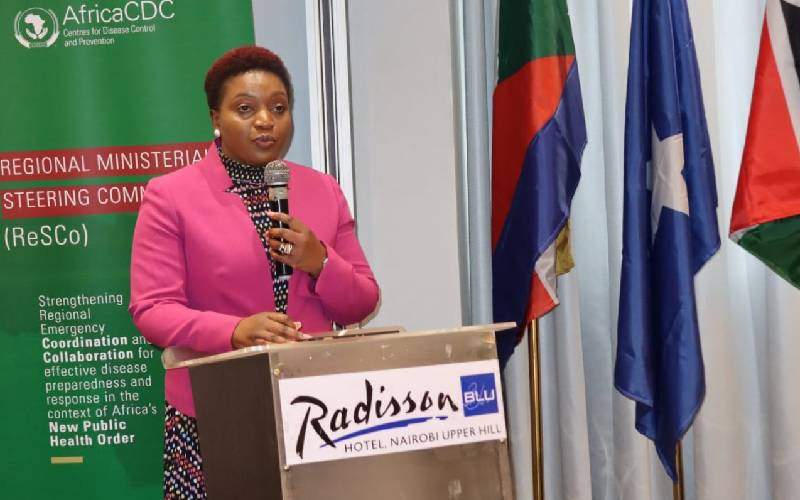
Felistas Ngatia (pictured), a nurse at Aga Khan University Hospital’s casualty department, is among the first points of contact for Covid-19 patients visiting the facility.
She has more than 15 years experience as an emergency and disaster management health worker but says a lot has changed over the last few weeks.
“Handling of patients has changed. We treat all of them as suspects of the virus without victimising them. We can’t take any chances and whether you come in with a different condition, we have to talk to you about Covid-19,” she says.
Even her interaction with colleagues has changed.
“Most people are avoiding me because I work in the emergency and fear I might contract the disease and infect them,” she says.
Ms Ngatia admits that they are working in unprecedented times and most health workers may face anxiety, fatigue, depression, burnout or post-traumatic depression.
“Every day when you come to work it’s all about coronavirus. Most health workers are facing stigma even from colleagues because of working in casualty area. We are also living in fear of contracting the disease and its stressful working long shifts,” she says.
She says they have an online platform where they share their experiences and concerns. The nurse adds that health workers can easily be forgotten during the pandemic so appropriate support services for staff must be a priority.
“Just like soldiers, health workers also face considerable mental stress and we take care of each other. When we see one of our colleagues looking stressed we ensure they get help given this could be a long drawn battle. We have a counselor at the hospital that one can access if they are overwhelmed,” she says.
Ngatia admits that it’s never easy losing a patient.
“People assume we are used to seeing patients die but it’s not true. Sometimes you receive a patient, you stabilise them, take them to ICU after the resuscitation and the patient dies. Most of us will go somewhere and cry especially if the disease was preventable,” she says.
The hospital has lost one patient to coronavirus.
Her role at the hospital is to ensure health workers wear personal protective equipment (PPE). She also educates patients on preventive measures against coronavirus.
She cautions the public against using a pair of gloves the whole day saying they risk transmitting infections.
Ngatia also says those wearing masks should take precautions since we are interlinked and the virus is now within us.
David Odada, an infectious disease control nurse at Aga Khan hospital says they ensure nurses wear the PPEs before meeting the patients.
He also adds that a nurse taking care of a Covid-19 patient cannot handle any other patient to avoid transmission. They now have an infectious control team that handles the emerging cases at the hospital.
“With a pandemic we do a risk assessment and chain of infection in a hospital set up to ensure risk of infection is very minimal. Only one nurse will carry out the test and take care of the patient to minimise contact. It applies to patients in ICU and those in isolation,” he says.
As an infectious control team at Aga Khan they are in contact with other nurses in the country where they share experiences on how to treat patients.
“There is less information on Covid-19 and we have to share experiences with our colleagues on how to manage different situations. Not all patients show same symptoms so the treatment approach differs. We isolate every person who tests positive and ensure their stay is comfortable while on isolation,” he says.
Mr Odada says they have a hotline and a pre triage desk specific for coronavirus at the entrance where cardinal symptoms are checked.
When he goes home, he has to be careful. After washing his hands, the nurse soaks his clothes in a detergent and cleans up to avoid cross transmission.
“I check my temperature every morning and evening before I leave work as high temperature is cardinal symptom of the virus,” he says.
 The Standard Group Plc is a multi-media organization with investments in media platforms spanning newspaper print
operations, television, radio broadcasting, digital and online services. The Standard Group is recognized as a
leading multi-media house in Kenya with a key influence in matters of national and international interest.
The Standard Group Plc is a multi-media organization with investments in media platforms spanning newspaper print
operations, television, radio broadcasting, digital and online services. The Standard Group is recognized as a
leading multi-media house in Kenya with a key influence in matters of national and international interest.











